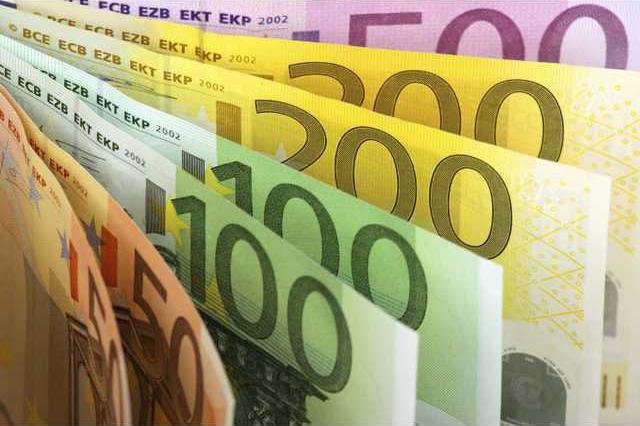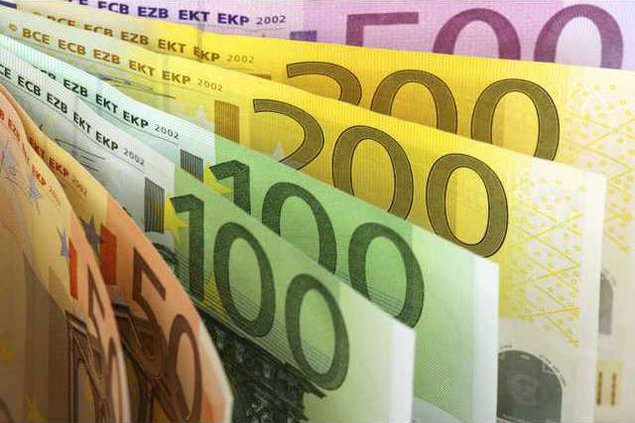The European Banks announcement that it will purchase billions of dollars worth of bonds from other banks has clear implications for Europeans, but what does it mean for the average American family and consumer?
For those planning to travel in Europe, a lot.
Think of it as Europe staging a giant 15 percent off sale, wrote CNBC.
Investopedia wrote that as the worth of the euro goes down, the buying power of the dollar becomes stronger. This means that Americans will be able to buy more stuff from Europe for less money than they could before.
Travelers in late January, for instance, paid $1.16 per euro, the lowest the value of the euro has dipped in many years, wrote Investopedia. As recently as September 2014 they would have paid $1.30. A British pound, which now costs about $1.50, would have cost $1.63 in September 2014.
This price drop only applies to people who plan to vacation in Europe. For everyone else there might not be a noticeable difference. ABC reported that although it may be cheaper to buy goods while in Europe, Americans would probably not notice a price drop in European imports.
The vast majority of the goods, by value, that the U.S. imports from Europe are industrial products: machinery, chemical products and related items, reported ABC.
US News reported that another reason why Americans wont notice a drop in prices for European imports is that the demand for them is too high.
Since Americans are willing and able to spend heavily on imported goods, there's no need for companies to cut prices, wrote US News. Any savings thanks to the euro's decline will instead be pocketed by manufacturers and distributors.
All of this being taken into consideration, Europes Central Bank didnt make its decision in order to help European families.
The hope is that the European Central Bank will effectively solve two problems: a lack of consumer spending and a deflated currency.
Fighting the current state of the deflating euro is a major concern for the Central Bank. According to the BBC, deflation hurts those in debt the most.
The problem is that their incomes may fall, but their debt payments if their debt involves fixed interest rates may not, the BBC explained.
Reversing the deflation trend by infusing more euros into the economy should keep families with debt from owing more on the loans than was originally planned, according to the BBC.
The hope is that adding these euros to the economy will not only encourage spending, but will encourage enough spending to strengthen the euro.
Even if an increase in spending occurs, for now it would be best for Europeans to keep away from American markets where the euro will have less buying power.
Its probably not the best time to be ordering online from U.S. websites then, wrote Irelands Business ETC.
For those planning to travel in Europe, a lot.
Think of it as Europe staging a giant 15 percent off sale, wrote CNBC.
Investopedia wrote that as the worth of the euro goes down, the buying power of the dollar becomes stronger. This means that Americans will be able to buy more stuff from Europe for less money than they could before.
Travelers in late January, for instance, paid $1.16 per euro, the lowest the value of the euro has dipped in many years, wrote Investopedia. As recently as September 2014 they would have paid $1.30. A British pound, which now costs about $1.50, would have cost $1.63 in September 2014.
This price drop only applies to people who plan to vacation in Europe. For everyone else there might not be a noticeable difference. ABC reported that although it may be cheaper to buy goods while in Europe, Americans would probably not notice a price drop in European imports.
The vast majority of the goods, by value, that the U.S. imports from Europe are industrial products: machinery, chemical products and related items, reported ABC.
US News reported that another reason why Americans wont notice a drop in prices for European imports is that the demand for them is too high.
Since Americans are willing and able to spend heavily on imported goods, there's no need for companies to cut prices, wrote US News. Any savings thanks to the euro's decline will instead be pocketed by manufacturers and distributors.
All of this being taken into consideration, Europes Central Bank didnt make its decision in order to help European families.
The hope is that the European Central Bank will effectively solve two problems: a lack of consumer spending and a deflated currency.
Fighting the current state of the deflating euro is a major concern for the Central Bank. According to the BBC, deflation hurts those in debt the most.
The problem is that their incomes may fall, but their debt payments if their debt involves fixed interest rates may not, the BBC explained.
Reversing the deflation trend by infusing more euros into the economy should keep families with debt from owing more on the loans than was originally planned, according to the BBC.
The hope is that adding these euros to the economy will not only encourage spending, but will encourage enough spending to strengthen the euro.
Even if an increase in spending occurs, for now it would be best for Europeans to keep away from American markets where the euro will have less buying power.
Its probably not the best time to be ordering online from U.S. websites then, wrote Irelands Business ETC.

